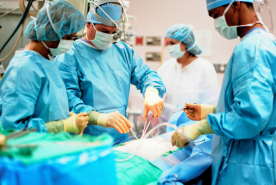Kidney Topics
Which Drugs are Harmful to Your Kidneys?
Certain drugs, including painkillers, antibiotics, and illegal substances, can harm your kidneys. Always follow your healthcare provider's instru...
Treatments and therapies,
Prevention, daily life, and wellbeing,
Medicines,
Risk factors






